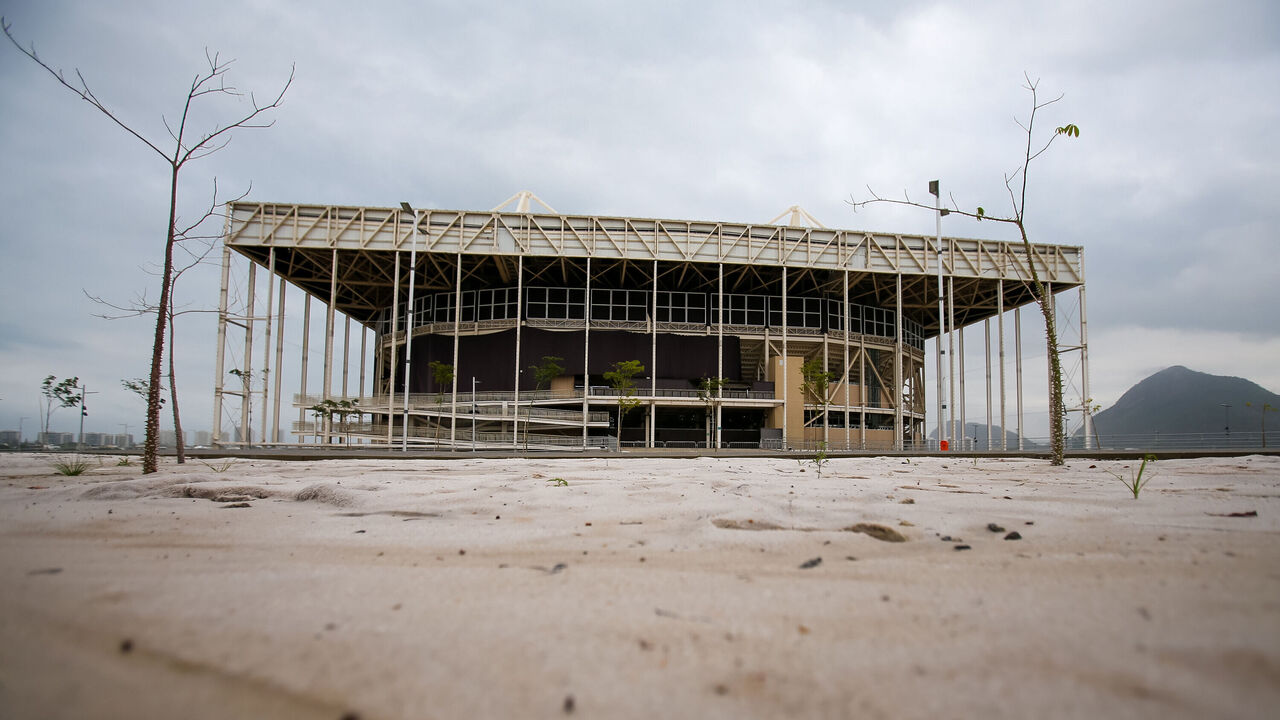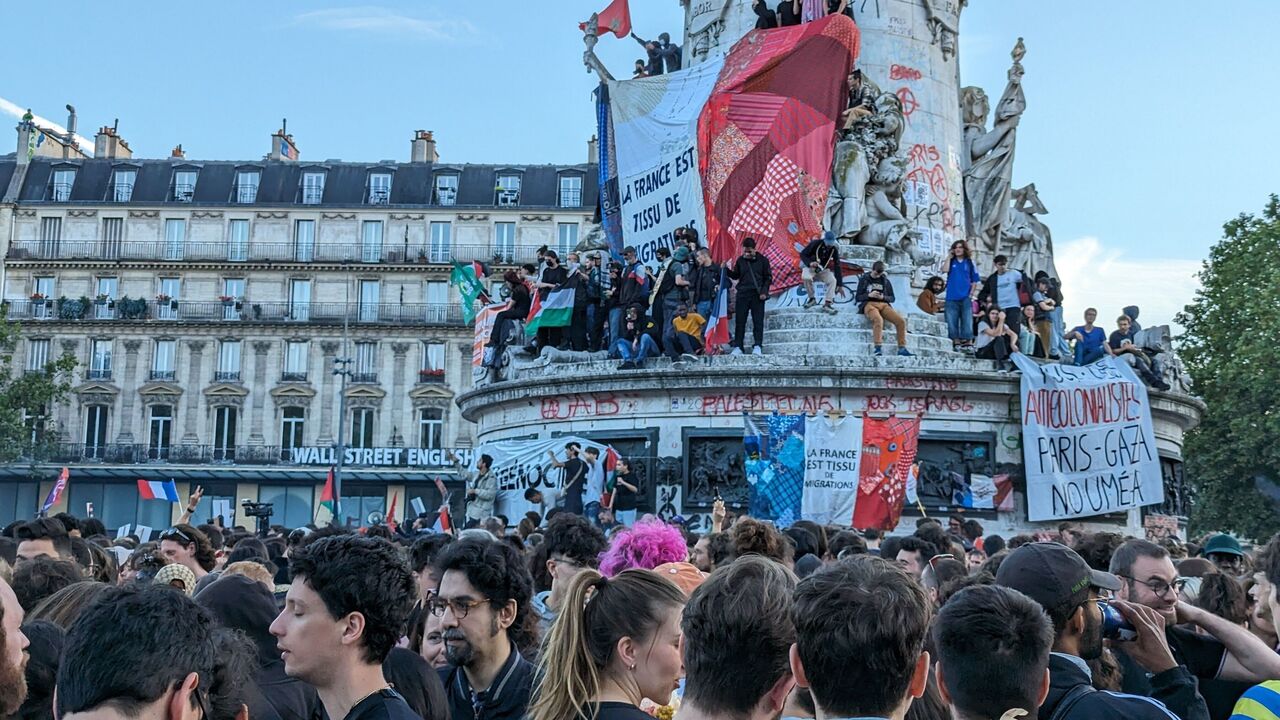Can Paris save the Olympics?
One of the first things I did after arriving in Rio de Janeiro for the 2016 Olympics was take a walk around the Olympic Plaza. It had been built at great cost, more than an hour from the city's hilariously congested downtown, to house several venues and administrative buildings.
And with the Games starting in a matter of days, it was very much incomplete. Brickwork was loose. Signs were missing. Workers were hurriedly painting. It set the tone for the Olympics that followed. Rio 2016 had many highlights but never came close to delivering the urban renewal that had been promised. Venues, including a purpose-built golf course, fell into disrepair and were sold at a loss. Transit projects were left unfinished. The notoriously dirty waterways remained so. Instead of being an example of how the Olympics could be a win-win in the developing world, Rio became a cautionary tale.

Those Games came amid a long, tough stretch for International Olympic Committee president Thomas Bach and his five-ring dignitaries. Sochi 2014 stands as an embarrassment for a host of reasons, not least for buffering the image of a Russian leader who has since become a warlord. PyeongChang 2018 was a logistical improvement on Rio but was still a winter event staged in a place that lacked a winter-sport culture. Three years later, the alpine venue was closed and trees had been replanted to restore the forest. Tokyo 2020 was supposed to signal the first of a more sustainable Olympic ethos, but then the pandemic hit, the Games were postponed, and with fans and tourists unable to attend a year later, losses were tremendous. Beijing, which was the only viable bidder standing for 2022 despite having just been an Olympic host 14 years earlier, ended up hosting the bleakest Games in memory under strict lockdown conditions and in a place that, again, had no winter-sport culture.
This all raises a question as these Games get underway: Can Paris save the Olympics?
Paris 2024 begins a series of Games in which Bach and the IOC have paddled furiously away from the Olympic-outreach program on which they had embarked, with great pride, beginning in Sochi. At that time, all the talk was about taking the Olympics to non-traditional cities, to spread the gospel of (mostly) amateur sport to parts of the world that didn't necessarily have much history with that sort of thing. The vision may have been grand, but the practical problems were enormous.
In response, the Olympics pivoted to the past, returning to Paris and Los Angeles (2028) in hopes of reusing many venues and avoiding ballooning cost overruns. The next three Winter Games are now lined up for the Italian Alps, the French Alps, and Salt Lake City, all places that, if nothing else, know a thing or two about ski hills. With the exception of Brisbane, Australia, in the summer of 2032, the next two decades of Olympic hosts will have plenty in common as wealthy G7 nations who have recent experience with the Games. France and the United States will each host an Olympics just six years apart, which would have been unheard of in the era when Olympic bids were hotly contested. Now, it's far more likely that a potential host will pull itself out of consideration - Vancouver's aborted 2030 bid, for example - than see the process through to the end.
Whether that trend can be reversed begins in Paris. A repeat Olympic host, but with the last coming a century ago, the French capital has existing infrastructure that should, in theory, keep costs down. But the economic legacy of the Games always takes years to assess after the fact, and there have already been questions about the French government's ability to deliver its post-Olympics promises after national elections resulted in a shaky coalition.

This hints at the real conundrum of the Olympics. As exciting and memorable as the athletic spectacle might be, many promises of the initial plan fail to materialize. Los Angeles was supposed to significantly expand its existing light-rail network to service the Games, but the plan is missing billions of dollars in funding and organizers are now expected to deploy a temporary bus system to get around a city not exactly known for smooth traffic flow. Those bus networks have become a Games staple: frustrating in the moment, bad for the environment, and with no lasting benefit.
For the next couple of weeks, at least, Paris and its people won't have to consider such questions of legacy. Stories about Games-related problems always fill the days leading up to the opening ceremony, but then the fire hose of events opens and provides an enjoyable distraction. When Usain Bolt was setting records in Rio, no one cared that garbage was still floating in some of the city's bays.
It will only be many months from now, and probably longer than that, that the benefits of Paris 2024 can be fully evaluated. These Games are essentially the start of the IOC trying to fix its mistakes. So, will it?
HEADLINES
- Fantasy: Week 1 Rankings (Sunday Update)
- NFL Week 1 betting primer: Spread movement, insights, and marquee matchups
- Witt lifts Royals to 1.5-game lead over Twins in AL wild card
- Quintana gets 100th win as Mets blank Reds for 9th straight victory
- Cortes upset Yankees moved him to bullpen: 'I've been the workhorse'